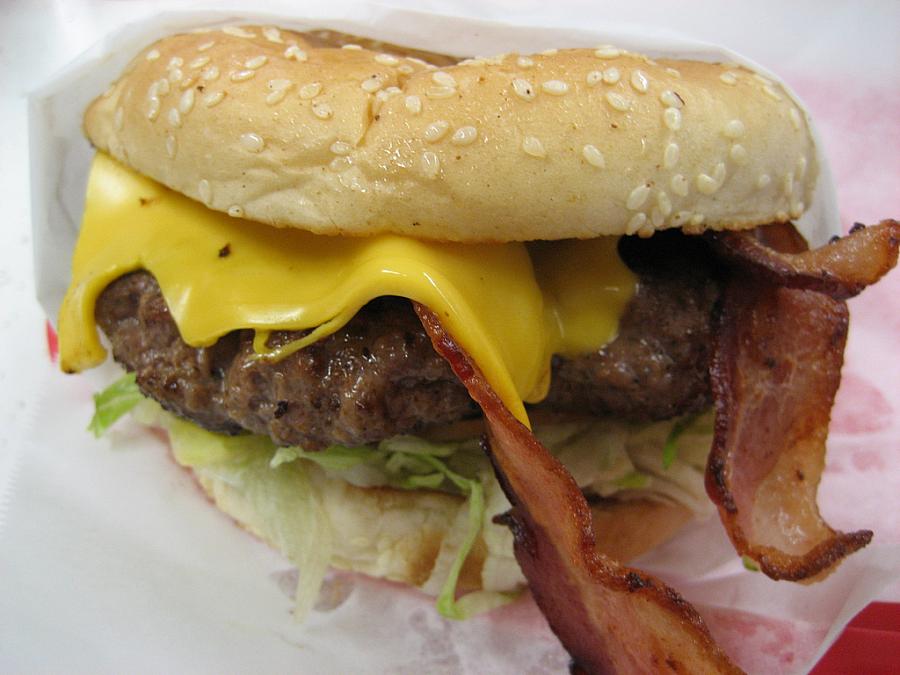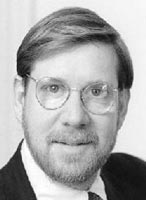America's Food Carnival and David Kessler's Prescription for Journalists

Food is an emotional subject. It touches so many things that are at the core of people's identities: parenting, finances, physical appearance, social interaction. It's the source of obsessions, anxieties, and phobias, even though it is a basic necessity of life.
So Dr. David Kessler's studies and ideas about how we relate to food often strike a nerve. In his 2009 book The End of Overeating, he explains how eating sugar, fat and salt - so liberally used in many processed foods - stimulate our brains, making us want more and more instead of feeling satiated. So, even when we know certain foods are bad for us, we can't stop overeating.

A report recently released by the Robert Wood Johnson Foundation and Trust for America's Health paints a dire picture of America's relationship with food. This country is getting fatter. 16 states have seen increased obesity last year and not a single state has seen a decrease. Kessler (left), who gave the keynote address to this years' National Health Journalism Fellows on Sunday, says that we have filled our lives with cues that cause cravings and created an unhealthy food culture, where for too many people fat, sugar and salt is desirable over healthy, real food.
Kessler, former FDA commissioner and now a professor at the UC San Francisco School of Medicine, draws a careful analogy with big tobacco. Nicotine reinforces addiction, but it's not the most reinforcing chemical out there. But when you add smoke, the taste, the and the sound of cellophane crinkling a pack of cigarettes, smoking becomes a powerful draw. Sugar may not be addictive in and of itself, but add textures, colors, mouthfeel and advertising and, "What did we think was going to happen?" Kessler said. "We're living in a food carnival." [Listen to the audio below for his explanation of the food-nicotine comparison.]
"Are we toast as a country?" Kessler asked the fellows. "Once you lay down these circuits, what can you do?"
Here's where the subject of how we eat gets sensitive: Who is to blame for our unhealthy food culture? What is the government's role is changing how we eat? What can and should individuals do to break the cycle of fat-sugar-salt consumption?
Many of the fellows agreed that government has a role to play in regulating how ingredients are displayed and in providing food education in schools. But should the government be subsidizing or taxing certain foods? Is it ok that many insurance companies use Body Mass Index to calculate rates?
Individuals can remove unhealthy eating cues from their homes, but changing the environment they live in -- the billboards and fast-food restaurants that scream out fat-sugar-salt -- is a longer battle.
"The food industry - forget it - they're going to sell whatever people want," Kessler said. "How do you get people to change what they want?"
Eating planned meals and raising children who don't crave processed food (because they don't eat it all the time) can help. But what Kessler prescribes is a deeper change. The most successful public health intervention in America has been campaigns to stop smoking. As FDA commissioner, Kessler said that their strategy in the 90s was not just regulating big tobacco. It was to make smoking socially unacceptable. "We demonized the industry," he said. "We can't demonize food. That's the stuff of eating disorders."
Junk food and soda taxes might be tools along the way to changing America's relationship to food and demonizing certain kinds of foods. But Kessler said that journalists played a big role in changing how Americans view the tobacco industry and they can play a similar role in our food culture.
"What does it really take to take on big, hard, complex questions?" he asked. "Can we focus on the food, not the weight? If I don't want to be fat but I want the food, it's not going to work."
Learn more about Kessler's work:
A 2009 interview on NPR's Fresh Air, in which Kessler explains what actually goes into a grilled chicken dish at Chilis and defines "conditioned hyper-eating"
A 2009 appearance on the Colbert Report in which Kessler makes Stephen Colbert's brain light up.
How do you cover food? Share in comments.

